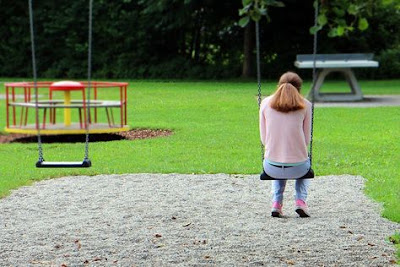Something about OCD and Why You Need to Seek Help!
Well, it's not uncommon to occasionally double or triple check locks, or running taps or if we have performed certain tasks for the day or not. Especially, if you are a perfectionist, it may not be uncommon for you to go over your work several times to be sure that you have got it right. This is normal (and acceptable).
However, problems arise when you feel forced to act a certain way repeatedly (this may go on over the years) even if you don't want to and deep down you know that you should not be doing it. Such behavioural patterns may aggravate to such an extent that they complicate your life and keep you from getting things done just because you can't get over a task or activity.
However, problems arise when you feel forced to act a certain way repeatedly (this may go on over the years) even if you don't want to and deep down you know that you should not be doing it. Such behavioural patterns may aggravate to such an extent that they complicate your life and keep you from getting things done just because you can't get over a task or activity.
What is OCD?
Obsessive-Compulsive Disorder is the worrisome situation of getting obsessed with something. This may be anything. Some of us are obsessed with needing constant reassurance, cleaning up spaces, inability to break routines, placing things in an ordered fashion, always making choices leading to self-sacrifice and so on.
So, how do you exactly know if you have OCD (and you need OCD treatment) or you are just being a perfectionist?
Well, OCD is not something you tend to develop at once. Symptoms start developing gradually and may even be confused about normal behaviour at first. Reasons can be varied - maybe some personal crisis, abuse, or something negative that affected you deeply. Symptoms generally include obsessions and compulsions (or both!).
An obsession is a thought process that is out of your control and causes a lot of stress. A compulsion, on the other hand, is an activity or more precisely a ritual that you tend to repeat a lot. While a perfectionist is able to differentiate a compulsion from routine behaviour, a person with OCD is not. A victim of OCD is unable to control their compulsive behaviour, while a perfectionist (although feels bad about it) is generally able to determine where and when to draw the line.
It won't be an exaggeration if we say that OCD is a condition that is commonly confused by people who simply like things super-clean or arranged. However, if you actually have OCD, the negative impact it exercises on your life can be real. It's suggested that you immediately start addressing the issue and seek OCD treatment. Identifying your triggers and learning to resist OCD compulsions can be a nice starting point. Professional OCD treatment generally includes psychotherapy, behavioural modification therapy, or psychiatric medications, alone or in combination, but again, it all depends on what the severity of the situation is and if you are considering it that seriously or not!





Comments
Post a Comment